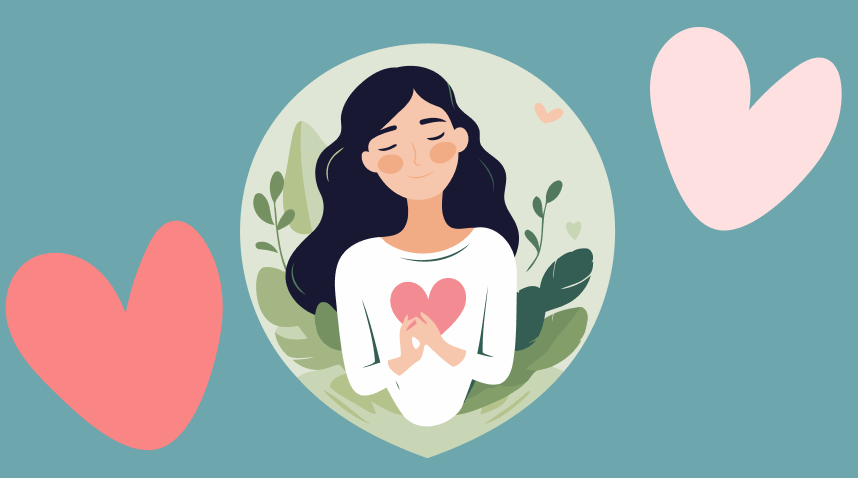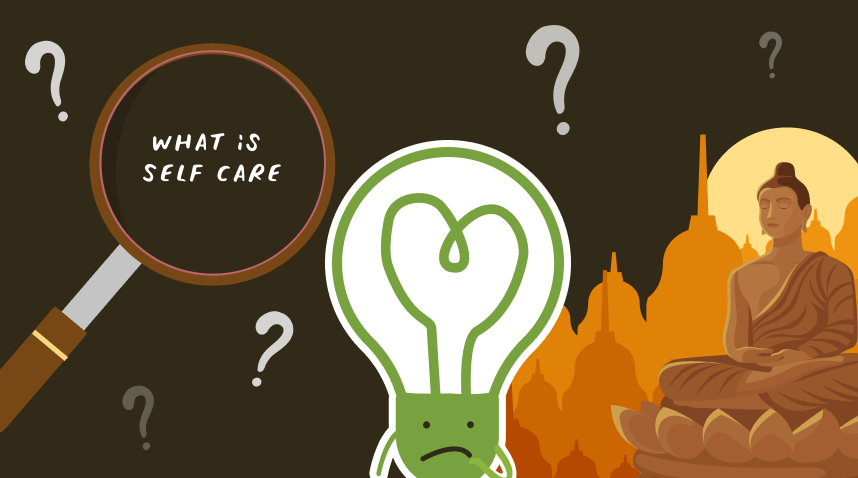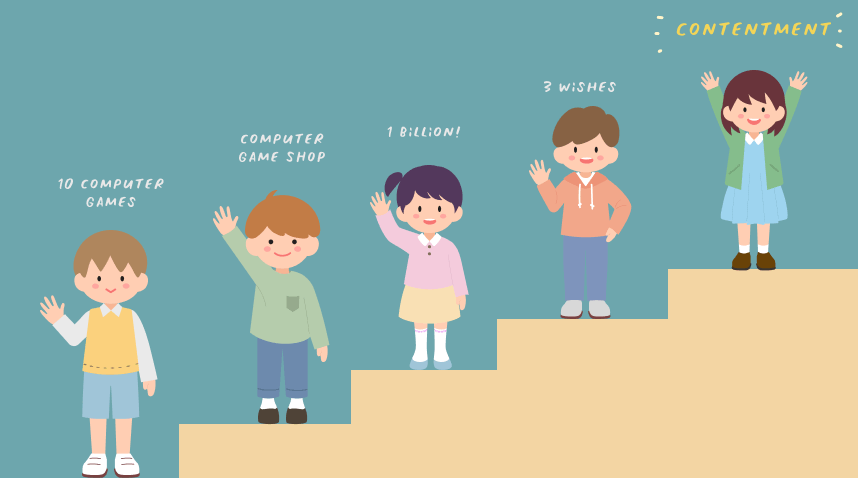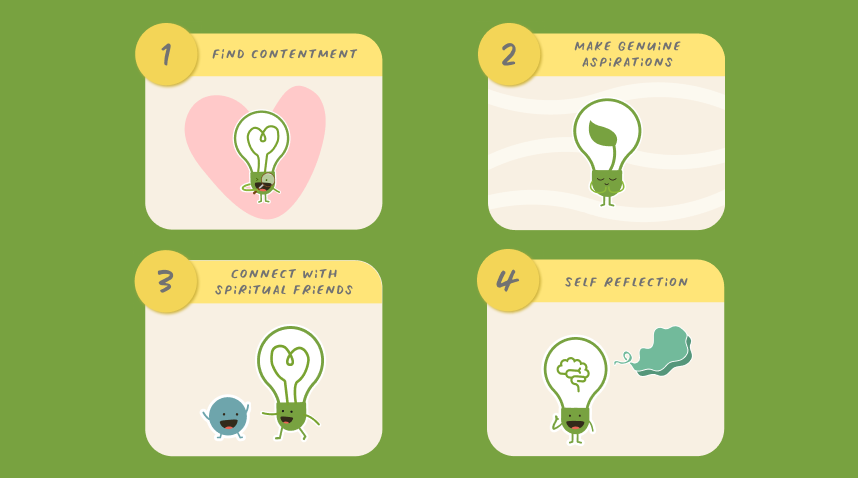Explore the concept of self-care through the lens of Buddhism and discover a more meaningful approach to well-being.
Imagine that you have finished a hard, long day taking care of your daily responsibilities at work or at home. You have dinner, take a shower, and finally slump onto the couch. You want to relax and have some time for self-care. What to do next?
Chances are that we will instinctively grab the TV remote to catch some Netflix, play a cool computer game, or even grab a book off the shelf and curl under the covers with a nice cup of tea, letting our mind wander off into a new realm.
But is this brand of self-care really helpful?
The Birth of Self-Care

The term ‘self-care’ only entered the popular lexicon with force a few years ago, spurred by the increasing awareness of pandemic-induced burnout and mental fatigue.
The original intent of the self-care movement was mainly about adopting healthier habits such as eating healthy, exercising and sleeping well.
However, it gradually blurred a little with self-indulgence helped in part by companies eager to promote their products as being conducive to mental and physical well-being. People started having and proclaiming their self-care routines on social media and credited their enhanced mental well-being to these new activities.
While these activities definitely have their place in our lives, do they truly have any lasting effects on us?
Re-thinking Self Care with the Vesak Lens

On the occasion of this Vesak, perhaps it is time that we re-think the concept of self-care upon the invitation of the Buddha. In a modern interpretation of his teachings, we could say that the fundamental teaching of the Buddha is inherently connected to self-care.
However, this form of self-care isn’t selfish at all; rather, it offers a wonderful feeling of freedom with every step. How then can truly start caring about our well-being?
Correcting our view of what is truly important
“I have arrived, I am home. In the here, in the now. I am solid, I am free.” – Thich Nhat Hanh
Believe it or not, most of us do not have a good idea of how our body and mind work. Many of us are so used to treating ourselves as machines, trying to make ourselves become more efficient and well-utilised so that we can “get more out of our day”.
We think anything that helps us to “produce more” is self-care. If only we had more energy, we could take on extra side projects, spend more time with our kids, or exercise more.
The list never ends! Our deep-seated need to keep reaching out for more leaves us feeling unfulfilled and unhappy. But why exactly do we keep wanting more when we already have plenty?
My answer is that we are brought up in a society governed by a constant sense of lack, not being good enough, and needing more.
We are always chasing the end of the rainbow without realising that this is not just a figure of speech but our actual reality!
It took immense courage and wisdom for the Buddha to see that society’s way of chasing the next thing was not the right path, and to take a chance on doing the exact opposite: stopping the desire for anything at all.
Instead of chasing the next goal relentlessly, however misguided it may be, we can consider not acting on every impulse to chase after the next shiny thing that catches our eye.
Staying right here, right now, no matter what

“When you want something more, you can’t enjoy what you already have.” – Ajahn Brahm
Ajahn Brahm often recounts the story of five children playing a wishing game, where the winner would be the one who made the best wish. The first kid says, “I want 10 computer games!” and thinks he is very smart.
However, the second kid beats this easily saying, “I want a computer game shop so I can have endless computer games!”. This is easily beaten again by the third kid who now wants $1 billion to buy a chain of computer game shops. In turn, the fourth kid easily surpasses this by wishing for 3 wishes, and that he can always wish for something more with his last wish. Beat that!
Now, the last kid, who has been observing this, says something unimaginable to the other kids: “I wish I were so content that I do not need any more wishes.”
In the traditional telling of this story, the fifth kid emerges as the winner of the wishing game, and he was actually the Buddha in one of his previous lives.
The kid had the wisdom to see that constantly desiring and shifting focus away from what one already has towards what one lacks is the root cause of unhappiness. To break free from unhappiness, one simply had to drop this tendency to look beyond oneself.
It sounds simple, but it actually represents one of the most important spiritual insights one can attain, signifying a radical shift from the way we have been operating for a long time.
It is with this realisation that we can now begin to imagine a future where we aren’t constantly buffeted by a nagging sense of insecurity, that somehow we need to do and achieve more to be accepted or to be loved.
All we need to do is to say “no” to our habits of wanting more, doing more, and simply recognising: “I have enough, I don’t need more to be happy.”
Imagine that since you were born, you’ve been constantly harassed by a prison guard who is unhappy whenever you attempt to rest and keeps whipping you as your head is about to touch the pillow.
But now, you finally found a way to keep the prison guard away from your room and your head finally hits the pillow. You finally have a good night’s sleep.
Re-setting our priorities

“Where does peace arise? Peace arises whenever we let something go.” – Ajahn Chah
I cannot stress enough how important it is that everyone tries to at least understand how this feels like. The power of letting be and not indulging our instincts to push and pull surpasses the pleasure born of any previous sensory delight or experience one might have had.
It cuts to the root of our unhappiness and directly undermines the power of the prison guard who does not allow us to experience any true joy. When we experience this very different, and much deeper sort of joy and peace, we would realise that what we experienced before was somehow lacking – they simply cannot compare.
It is like a person who’s only ever tasted apple-flavoured sweets, thinking that he knows the taste of apple, until he bites into an actual apple and finds out that the real apple has a far superior taste.
Such an experience is the proverbial snowball that starts the avalanche of learning how to repeat this joy of being kind and letting things be.
The good news is that developing such joy and peace is a skill that can be learned and cultivated. We can start small, with a genuine aspiration this Vesak Day, to learn more about this type of true peace, and begin seeking out other friends who understand this.
By hanging out more with them and seeing more examples of how others have embarked on their respective journeys towards true peace and self-care, we can start to make similar changes to our lives.
We can begin with a simple reminder to ourselves every morning: running away from ourselves and grasping onto things does not bring happiness while letting go brings peace and joy.
If we find time during the day for 5 or 10 minutes, we can sit and observe our heart, and end by reaffirming our commitment to experiencing letting go.
And when we see opportunities in daily life to let go a little, such as giving someone our time without asking for anything in return, or stepping aside so someone can go first, pursue those opportunities – they will bring you happiness and joy.
And sooner or later, we will discover that peace and happiness have become constant companions on our journey of life. Happy Vesak to everyone!
Wise steps:
- Take a moment to evaluate if your self-care activities are truly beneficial in the long run.
- Instead of constantly seeking new experiences, appreciate the present moment and find joy in simple things.
- Connect with others who share similar values and seek support in your journey towards true self-care.

